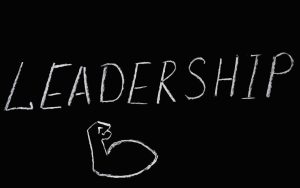Authentic leadership empowers you to lead from your true self and unlock your unique passions. However, cultivating this leadership approach requires deep self-awareness and insight into your inherent strengths. The HIGH5 strengths assessment provides a comprehensive analysis to jumpstart your authentic leadership journey.
By identifying your top strengths through validated psychological methodologies, you gain a profound understanding of your natural talents, motivations and value system – the foundational elements of an authentic leader. This level of self-knowledge equips you to confidently embrace your individuality while inspiring others through your genuine leadership presence.
Nowadays, so many leadership styles claim to let you do that, too. So, what makes the authentic leadership style different? In general, it is very unrestrictive. Instead of giving you strict guidelines, it encourages you to go with the flow.
If that sounds appealing to you, realize this: changing your leadership approach is not as easy as you think. You are probably used to the status quo, the traditional leading method. Transitioning from that will take some work. However, many successful authentic leaders will tell you the effort is worth the payout.
In this article, we will provide you with an honest evaluation of the benefits and drawbacks of the authentic leadership style as well as what you can do to implement it.
What is authentic leadership?
Today may be the first time you have heard of this concept. But, it is by now ways a new notion. Since the 1980s, psychology experts have been discussing the importance of being yourself in the workplace. The term was coined in 2003 when Bill George wrote his popular book titled Authentic Leadership.
In general, authentic leaders are individuals who see their strengths and weaknesses and choose to embrace them. They know who they are, and they are proud of it. Instead of hiding their weaknesses and vulnerabilities, they accept them. This does not mean that these individuals do not care for feedback.
They still do, but authentic leaders do not let others belittle them into being someone they are not. Genuineness is at the heart of this leadership style. Being ethical and having a strictly moral perspective on decision-making is also key. This simply means that genuine leaders are comprised when it comes to respecting their core values. These core leadership values define them as a person, and they also define how they are as a leader.
What is authentic leadership theory?
Authentic Leadership Theory, as detailed in Bill George’s book “Authentic Leadership: Rediscovering the Secrets to Creating Lasting Value,” emphasizes the importance of leaders being true to their values and purpose while leading with heart and self-discipline. This approach fosters genuine relationships and prioritizes ethical behavior. The final result is sustainable success and greater shareholder value.
Purpose
Authentic leaders have a clear sense of purpose that guides their actions and decisions, ensuring alignment with their long-term vision and goals. This purpose-driven approach motivates and inspires their team, creating a cohesive and focused organizational culture.
Values
Central to authentic leadership is the adherence to strong core values, which serve as the foundation for all decisions and behaviors. By consistently upholding these values, leaders build trust and credibility within their organization.
Heart
Leading with heart involves showing empathy and compassion, and prioritizing the well-being and development of team members. This emotional connection fosters a positive and supportive work environment, enhancing team morale and collaboration.
Self-discipline
Authentic leaders demonstrate self-discipline by maintaining control over their emotions and actions, even in challenging situations. This trait ensures consistency and reliability, allowing leaders to navigate ethical dilemmas and make principled decisions.
Relationships
Building genuine relationships is a cornerstone of authentic leadership, as it emphasizes trust, transparency, and mutual respect. By fostering strong connections with their team, leaders create a sense of unity and collective purpose, driving organizational success.
Importance of authentic leadership
How often do you feel compelled to compromise your true self for others? Such situations breed frustration and burnout. Authentic leadership resolves this by allowing you to show up as your complete, confident self – ethical values and all. In fact, staying steadfastly true to your core principles is a key advantage of this approach.
The HIGH5 strengths assessment provides personalized insights to reaffirm the alignment of your values and pinpoint opportunities to lead more authentically from your unique strengths. When you deeply understand and lean into what intrinsically motivates and fulfills you, you cultivate an uncompromising leadership presence. This way, you can stay true to your mission and avoid losing your sense of self. If that sounds impressive, there are even more benefits you should be aware of.
10 benefits of authentic leaders
Additional benefits of the genuine leadership style include:
- Boosting your intrinsic motivation (and decreasing your reliance on others for motivation)
- Following through with more ethical leadership behavior so you do not feel guilty at work
- Staying true to your personal values
- Achieving both your short and long-term goals
- Setting a positive example for your entire organization: you should not hide your true self
- Building a positive company culture that is also inclusive
- Higher levels of trust and strengthened employee/employer relationships
- Boosting your and your team’s productivity
- Becoming more honest and self-aware about both your strengths and weaknesses
- Putting a clear emphasis on integrity and honesty in workplace relationships
Pro Tip From HIGH5
Leverage your HIGH5 assessment results to craft a personal leadership mantra or mission statement based on your top strengths. For example, if your strengths include Determination and Accountability, your mantra could be “I lead by example, persisting through challenges to deliver on my commitments.” Refer back to this mantra or personal mission statement when you need to realign with your authentic leadership presence.
3 real-life examples of authentic leadership
You can be a successful leader in any type of business or industry. But, can you be a successful authentic leader in any industry? Truthfully, it is possible. However, it depends on the specific goals you have as well as your personality as a leader. If you think the authentic leadership approach may be right for you, consider how it can be applied in different scenarios.
Authentic leadership in healthcare
Authentic leadership offers immense benefits to patients in healthcare. Some studies have found that patient outcomes are affected by how authentic their doctors act. However, a study by Dr. Marques-Quinteiron clarifies that the significance of this relationship depends on several factors, such as the type of patient and the significance of the illness.
When doctors are willing to be themselves, they are generally more positive. This alone can help them avoid burnout and stay motivated in long, arduous shifts. As a physician, you can increase your attention to detail by being authentic, for you are less stressed and can thus focus better.
Authentic leadership in the workplace
If you prefer authentically leading a team, but also have a second leadership style, this can be tough to balance in the workplace. Those who used an autocratic leadership style previously to transition to an authentic one face the most difficulty.
This is so because there are so many differences between the autocratic leadership type and the authentic ones. Changing from control and dominance to laid-back leadership is genuinely difficult. Thus, your definition of authentic leadership may change from time to time. And, crafting a blend of leadership styles can sometimes be difficult if you only value authenticity.
Authentic leadership in education
Having a leadership role in education can be quite challenging, especially when the world of education is always changing. Very recent research in Thailand reveals that authenticity in schools can have meaningful impacts on student outcomes.
Those schools that use an authentic style of leadership can expect higher test scores and better attention rates according to Kulophas & Hallinger. These schools allowed students to explore their own authentic selves as well. When students decided an activity did not match their interests, educators allowed them to change their schedules. This leads to higher satisfaction and more commitment from students.
Authentic leadership’s key characteristics
Every leader has their own unique characteristics; not all managers are the same, even if they use the same leadership tactics. However, some characteristics set authentic leaders apart from the gold-standard individual.
Values
Authentic leaders prioritize their core values and ensure these guide all their decisions and actions, creating a consistent and trustworthy leadership style.
Integrity
They uphold strong moral principles and honesty, ensuring their actions align with their ethical beliefs and fostering trust within their team.
Transparency
Authentic leaders openly share information and decision-making processes, building trust and encouraging open communication.
Intimate relationship
They cultivate close, meaningful connections with team members, fostering a supportive and collaborative work environment.
Self-discipline
Authentic leaders exhibit self-control and responsibility, consistently working towards their goals while managing their emotions and behavior.
Communication
They prioritize clear and effective communication, ensuring that team members understand expectations and feel heard and valued.
Lead with heart
Authentic leaders demonstrate empathy and compassion, making decisions that consider the well-being of their team.
Balanced processing
They consider multiple perspectives and involve others in decision-making, leading to more informed and fair outcomes.
Compassion
Authentic leaders show genuine care and concern for their team members’ well-being, creating a positive and supportive work culture.
Lead by example
They model the behavior and work ethic they expect from their team, inspiring others through their actions.
Personal development
Authentic leaders are committed to their personal growth and encourage their team to continuously develop their skills and abilities.
Purpose
They have a clear sense of purpose and align their actions with their long-term vision and goals, motivating their team towards shared objectives.
Transparency
They maintain openness in their actions and decisions, fostering trust and encouraging honest dialogue within their team.
Connectedness in relationships
Authentic leaders build strong, meaningful connections with others, creating a sense of unity and mutual support.
Emotional intelligence
They understand and manage their own emotions while empathizing with the emotions of others, leading to more effective and compassionate leadership.
Focus on Improvement
Authentic leaders are dedicated to continuous improvement, both personally and professionally, always seeking ways to enhance their performance.
Long-term focus
They prioritize long-term goals and strategies over short-term gains, ensuring sustainable success for their organization.
Passion
Authentic leaders are passionate about their work and inspire enthusiasm and dedication in their teams.
Relate to your team
They connect with their team on a personal level, understanding their individual strengths, needs, and motivations to foster a more engaged and motivated workforce.
Pro Tip From HIGH5
Use the HIGH5 assessment’s “shadow side” blindspot insights to identify areas where you may be overusing strengths to a detriment. For example, if Curiosity is a top strength, are you asking so many questions that you struggle to make decisions? Create specific action plans to better regulate each strength potential pitfall through complementary strategies.
How do you develop and become an authentic leader?
Your genuine leadership style is not set in stone. You can always change it to a more authentic leadership method. Evaluate how authentic you are right now. Ask yourself which parts of your personality you are still holding back. If you are struggling, consider hiring a coach. There are a few steps anyone can take to become more genuine, moral and character-based leaders.
1. Explore your values
Whenever you make a decision, place your values first. You must be moral and ethical when you lead. Unfortunately, too many leaders place strategy ahead of values. Realize that placing strategy first will make you less authentic. When interviewing candidates, make sure their values are aligned with yours. Plainly articulate your values and never hide them.
2. Journal
Journaling is a great way to learn more about yourself. Sometimes, writing allows you to explore parts of yourself you never knew even existed. You can journal about anything, but consider spending time writing about your goals, values, passions, and losses. These topics will reveal the most about you. You may even recognize certain patterns that reveal your strengths and weaknesses.
3. Solicit feedback
While crucial for growth, many leaders avoid feedback as it can trigger ego-defensiveness. However, authentic leadership requires openness to others’ perspectives of your leadership style and presence. Try this: After taking the HIGH5 assessment, ask team members how they perceive your top strengths playing out, as well as potential blind spots. This provides a 360-degree view of how your talents manifest interpersonally. Combined with your assessment results, this feedback deepens self-awareness to more authentically lean into your strengths while regulating weaknesses.
4. Practice brutal honesty with yourself and gentle honesty with others
Honesty is key when trying to be authentic. Ask yourself if your actions and thoughts are aligned with your values. If they are not aligned, ask yourself why that is so. Consider if any other values are at play when you make decisions. As a leave, you will need to give others feedback, too. Be honest, but constructive. Ensure you do not make your staff self-conscious, apologize if you do, and adjust your communication style accordingly.
5. Develop your listening skills
The best leaders are very skilled in active listening. Rule number one is to never interrupt someone when they are speaking. You may have the urge to, but resist, for it is immensely disrespectful. This seems simple, but it is genuinely difficult for some. Ask questions and be engaged in each conversation. View each conversation as an opportunity to learn something new and display your empathy.
6. Share personal stories
The best way to authentically motivate a team is through a personal connection. Stories are a great way to establish such a connection. If employees can associate your struggle with theirs, they also start viewing you as more relatable. Thus, they will not be as intimated to approach you for advice or feedback. Listen to how others react to your stories. You will gain valuable insights into what drives your team.
7. Write your own code of ethics
Ethics and honesty should be at the forefront of every decision. This is certainly true for authentic leaders. Stay committed to this code of ethics, no matter what situation you are in. There is no reason to be unethical as a leader. Being uncompromising about your values is a core trait of authentic leaders. Take time to write down these values so you are always reminded of what should drive your every choice.
8. Create a leadership learning plan
To be a great authentic leader, you should accept yourself for who you truly are. However, this does not mean you should be satisfied with your current self and avoid growth. You can be an authentic leader; you constantly grow and better yourself. You are not becoming a different person, but rather, being the best version of yourself.
Write down what your current weaknesses are and how you can work on them. Seek advice from others, too. Then, set goals for yourself and work on your leadership growth.
9. Be open to suggestions
Authentic leaders do not isolate themselves from their teams. They are open to hearing other individuals’ views and suggestions. Do not immediately judge someone after they give feedback. Ask them more in-depth questions to understand them better. See if and why someone disagrees with you. Which values are different between the two of you, and how can you reach a consensus? That should be the question that you should ask from feedback.
Pro Tip From HIGH5
Reflect on how your HIGH5 strengths currently show up in your leadership approach – what’s working well, and what could be amplified? Leverage these insights to map out a long-term authentic leadership development plan, setting concrete goals around embodying more of your natural talent themes.
Advantages and disadvantages of authentic leadership
There is no perfect leadership approach. No matter which technique you find most appealing, you must recognize there are drawbacks to it. This is also true with authentic leadership.
Ultimately, you must decide if it is best for your particular situation.
5 advantages of an authentic leader
The benefits of authentic leadership include:
- Less stress at work and a decreased burnout rate
- More motivation from a clearer understanding of your goals
- Feeling more comfortable with both your strengths and weaknesses
- Becoming more self-aware and humble
- Putting long-term success over short-term wins because of placing ethics first
5 disadvantages of an authentic leader
The following authentic leadership characteristics are negative:
- This could create controversy in the workplace and increase the risk of conflict
- Employees may start to view you as clumsy if you often make mistakes and admit this
- Authentic leaders are typically less effective and often have trouble prioritizing tasks
- Asking others to honestly share feedback can make you feel uncomfortable
- You may struggle with identifying who you truly are, which makes you waste time and become less productive
How to implement authentic leadership?
To implement authentic leadership, start by taking a leadership style quiz, embracing self-awareness and reflecting on your core values, strengths, and weaknesses. Use tools like journaling and self-assessment to deepen your understanding of what drives you. Ensure that your leadership approach is consistently aligned with your personal values, as this builds trust and integrity within your team. Actively seek feedback from others to gain insights into how your leadership style is perceived and to identify areas for improvement. Being open to constructive criticism will help you refine your approach and stay true to your authentic self.
Next, focus on developing strong, transparent communication skills. Practice active listening by fully engaging in conversations, asking clarifying questions, and genuinely considering the perspectives of your team members. Share personal stories and experiences to build deeper connections and demonstrate relatability. Establish a personal code of ethics to guide your decisions and actions, committing to ethical behavior in all situations.
Finally, encourage collaboration and continuous growth within your team. Set specific goals for personal and professional development, both for yourself and your team members. Cultivate a culture of feedback, where input is encouraged and valued. Show openness to different viewpoints and be willing to adapt based on constructive feedback.
By prioritizing long-term success and ethical behavior, you can create a supportive and innovative work environment that drives sustainable success. Implementing authentic leadership involves a commitment to self-awareness, transparent communication, and fostering a collaborative, growth-oriented team culture.
10 famous persons who use an authentic leadership style
Successful leaders each have qualities that help set them apart from their competition. Many of these inspiring leaders and famous individuals attribute their success in part to their authentic leadership model.
Some of these authentic leaders include:
- Steve Jobs, founder of Apple
- Oprah Winfrey, television personality and media mogul
- Anne Mulcahy, former CEO of Xerox
- Sam Palmisano, former CEO of IBM
- Jack Welch, former CEO of GE
- Warren Buffet, CEO of Berkshire Hathaway
- Jason Y. Lee, founder of Jubilee Media
- Arne Sorensen, former CEO of Marriott
- Bill George, former CEO of Medtronic
- Ratan Tata, chairman of the Tata Group
Authentic leadership FAQ
What are the four components of authentic leadership?
Some psychologists and researchers narrowed down authentic leadership to four specific components: self-awareness, transparency in relationships, balanced decision-making/processing, and a clear understanding of your morals. Such leaders often reflect on their strengths and weaknesses, which boosts their self-awareness. Transparency is shown when leader shares their vulnerability with their staff. The balanced component consists of leaders seeking out multiple opinions. Finally, morality and ethics are the guiding principles behind every authentic leader’s decision-making.
What are the 5 dimensions of authentic leadership?
The five dimensions of authentic leadership are purpose, values, heart, relationships, and self-discipline. These elements guide authentic leaders in their actions and decisions, ensuring they remain true to themselves and their principles.
What are the three qualities of authentic leadership?
The three qualities of authentic leadership are self-awareness, ethical behavior, and relational transparency. These qualities enable leaders to build trust, act consistently with their values, and foster genuine connections with their team.
What best describes authentic leadership?
Authentic leadership is best described as leading with self-awareness, integrity, and transparency while staying true to one’s core values and building genuine relationships. This approach fosters trust and creates a supportive and ethical work environment.








